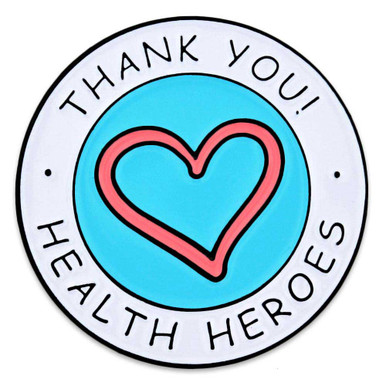
Lapel Pins for Healthcare Providers: Building Trust with Patients
Building trust with patients is one of the cornerstones of providing excellent healthcare. The relationships that healthcare providers form with their patients go beyond medical expertise; they are rooted in compassion, empathy, and a shared sense of purpose. One powerful yet often overlooked way to foster these connections is through something as simple as wearing a lapel pin. These small accessories can symbolize your commitment to your patients' health and well-being, signaling to them that you are invested in more than just their treatment. Lapel pins have long been used to raise awareness, promote causes, and signify membership in organizations—making them a subtle yet meaningful tool for healthcare providers to build trust and rapport with their patients.
When you wear a lapel pin that represents a healthcare cause or organization, it shows patients that you stand with them, both as their healthcare provider and as an advocate for their health. A well-known example is the pink ribbon, a symbol for breast cancer awareness. By wearing a pink ribbon, you demonstrate your support for those affected by breast cancer, fostering a deeper sense of empathy and trust. But breast cancer awareness is just one of many causes that lapel pins can represent. For instance, wearing a lavender ribbon pin signifies support for all cancers, helping patients feel seen and understood, no matter their specific diagnosis. Whether it’s a color that supports mental health awareness, childhood cancer, or an all-encompassing awareness ribbon, these small gestures can go a long way in building a sense of solidarity and trust between healthcare providers and patients.
Another example of a healthcare-related lapel pin is the red heart pin, which is often worn during February to signify American Heart Month. By wearing a red heart pin, healthcare providers can show their support for heart health awareness and encourage patients to take steps towards better cardiovascular health. This can help create a sense of trust between doctors and patients, as it shows that the provider cares not just about treating their patients but also about promoting overall well-being. Red awareness lapel pins like the ones below pin can also be used to raise awareness about heart disease, one of the leading health issues globally, sparking important conversations about prevention and treatment.
 |  |  |
For example, a pediatric healthcare provider might wear a lapel pin to raise awareness for childhood cancer. This simple gesture not only helps highlight the importance of childhood cancer awareness but also draws attention to the need for more research and funding for a cure. Similarly, a doctor specializing in diabetes care may wear a pin that represents the diabetes community. This pin can build trust with patients, showing that their healthcare provider is not just focused on treating them but is genuinely dedicated to their long-term health and well-being. Additionally, a lapel pin can serve as a symbol of the provider’s experience and expertise, showing how long they’ve been dedicated to treating specific conditions. Beyond showing care, it can also gently remind patients to follow through with treatment plans, which helps strengthen the trust between doctor and patient.
Lapel pins also provide healthcare providers with a great opportunity to educate their patients. Wearing a pin that represents a health issue can easily start conversations about that topic, giving providers a chance to share important information and raise awareness. For instance, a doctor might use their pin to discuss the importance of early detection or explain new treatments. This offers an opportunity to not just provide care but also to empower patients with knowledge that can improve their health. By educating patients, healthcare providers build a stronger sense of trust and community, positioning themselves as a reliable source of guidance throughout their patients’ healthcare journey.
There are many important causes that healthcare providers may support, including:
1. Cancer research and treatment
2. Mental health awareness and advocacy
3. Emergency response and disaster relief efforts
4. Access to healthcare for underserved and marginalized communities
5. Medical education and research
6. Children's health and well-being
7. Environmental health and sustainability (Reducing medical waste)
8. Women's health and reproductive rights
9. Eldercare and support
10. Addiction treatment and recovery programs
11. LGBTQ+ health and rights
12. Patient advocacy and empowerment
13. Domestic violence prevention and support
14. Global health initiatives and international aid efforts.
Lapel pins can be a powerful way to build trust with patients. By wearing a pin that represents a cause or health issue, healthcare providers show their commitment to their patient's well-being and demonstrate that they care beyond just medical treatment.
These small symbols also offer an opportunity to raise awareness and start meaningful conversations about important health issues with patients. Ultimately, lapel pins help create a sense of trust and ease between healthcare providers and their patients, which is key to providing the best care possible. They signal to patients and their families that the provider is deeply invested in both their emotional and medical needs. In addition to awareness pins, there are also pins that celebrate the roles of nurses, emergency responders, and doctors—each symbolizing a dedication to helping others and a love for the medical profession.
Health Heroes Lapel Pin

$4.79
Show some love to our brave and tireless medical workers with this Health Heroes Lapel Pin. This die struck soft enamel pin will add a...… read more


